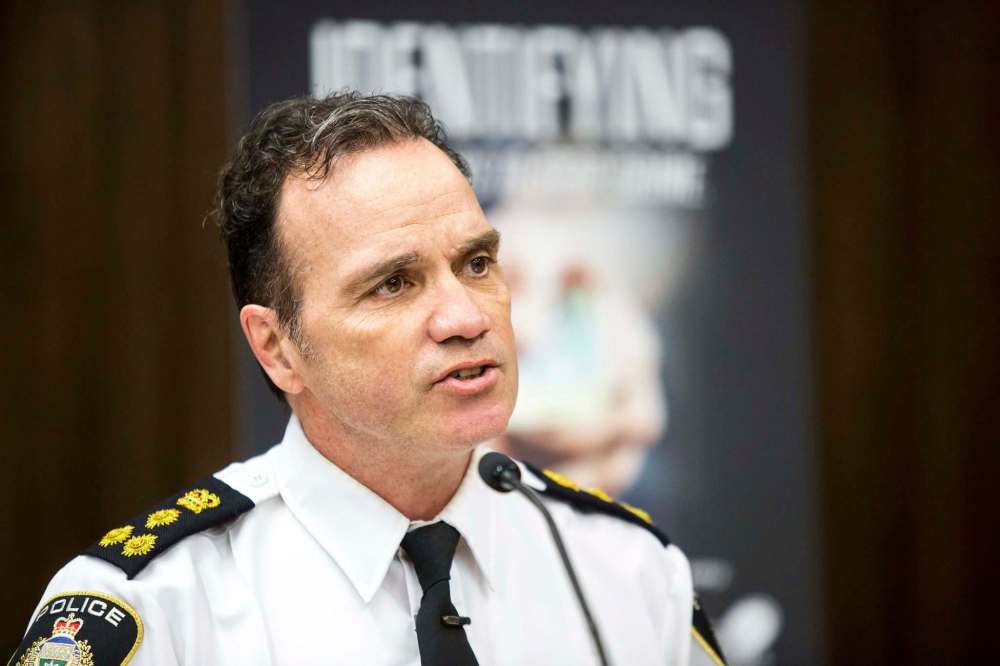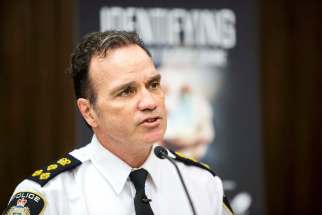Police obstruction shows IIU model is broken
Read this article for free:
or
Already have an account? Log in here »
To continue reading, please subscribe:
Monthly Digital Subscription
$0 for the first 4 weeks*
- Enjoy unlimited reading on winnipegfreepress.com
- Read the E-Edition, our digital replica newspaper
- Access News Break, our award-winning app
- Play interactive puzzles
*No charge for 4 weeks then price increases to the regular rate of $19.00 plus GST every four weeks. Offer available to new and qualified returning subscribers only. Cancel any time.
Monthly Digital Subscription
$4.75/week*
- Enjoy unlimited reading on winnipegfreepress.com
- Read the E-Edition, our digital replica newspaper
- Access News Break, our award-winning app
- Play interactive puzzles
*Billed as $19 plus GST every four weeks. Cancel any time.
To continue reading, please subscribe:
Add Free Press access to your Brandon Sun subscription for only an additional
$1 for the first 4 weeks*
*Your next subscription payment will increase by $1.00 and you will be charged $16.99 plus GST for four weeks. After four weeks, your payment will increase to $23.99 plus GST every four weeks.
Read unlimited articles for free today:
or
Already have an account? Log in here »
Hey there, time traveller!
This article was published 16/04/2019 (2429 days ago), so information in it may no longer be current.
It’s disturbing that animosity between the Winnipeg Police Service (WPS) and the Independent Investigation Unit of Manitoba has inflamed to the point where the two agencies will face off in court.
The IIU is trying to fulfil its function as a police watchdog by investigating the death of Matthew Richard Fosseneuve, 34, who died on July 28 after he was hit with a Taser near the intersection of Logan Avenue and Princess Street. Five police officers and two cadets were on the scene.
Despite three written requests to the police service, the IIU has been unable to get the cadets’ incident reports and notes, which are important to the investigation because the cadets were the first people to encounter the victim during the confrontation.

Unfortunately, police refusal to co-operate isn’t surprising. A Free Press investigation in November 2018 found the IIU has repeatedly had its investigations obstructed and undermined by city police, who sometimes refuse to participate in investigations.
In the latest conflict, police Chief Danny Smyth says there’s a gap in the Police Services Act that allows him to block access to information that could link the two cadets to Fosseneuve’s death. The chief may be right. It will be up to the court to decide, since the IIU filed an application to have the Court of Queen’s Bench force the WPS to hand over the materials.
But it’s disappointing that the chief is relying on a possible legal loophole to shirk the force’s responsibility to be accountable to the public in a matter as serious as the death of a person in police custody.
The relationship of trust between police and citizens depends on co-operation from both sides. As the chief well knows, the important work of police officers would become immeasurably tougher if the public gave police as little co-operation as he gives the IIU.
For example, when police ask questions of citizens on the street, we don’t legally have to answer in most cases unless we’re arrested. When police ask citizens for identification, we’re not legally required to give it in most cases. When police ask us for help as possible witnesses to a crime, we could invoke our right to remain silent and refuse to tell police what we know.

Most of us co-operate, though, because we believe the police-public relationship should be one of mutual respect and trust.
But how does the chief respond when asked for co-operation by the IIU, an agency acting on behalf of the public? He refuses to go beyond the legal minimum degree of co-operation.
The pattern of police refusing IIU requests should concern all Manitobans. But the WPS’s obstinance should especially concern Justice Minister Cliff Cullen. It was the provincial government that instituted the IIU in 2009, and it’s the province that has the power to fix it.
Two regular criticisms of the IIU are that it lacks the teeth to make police co-operate, and it’s not as civilian-led as originally intended because it’s currently composed largely of former police officers. Those two high-priority issues should form the focus of the province’s planned review of the Police Services Act.
When the IIU must go to court to force police co-operation, the system is fractured. And it’s the responsibility of the province to fix the cracks.














